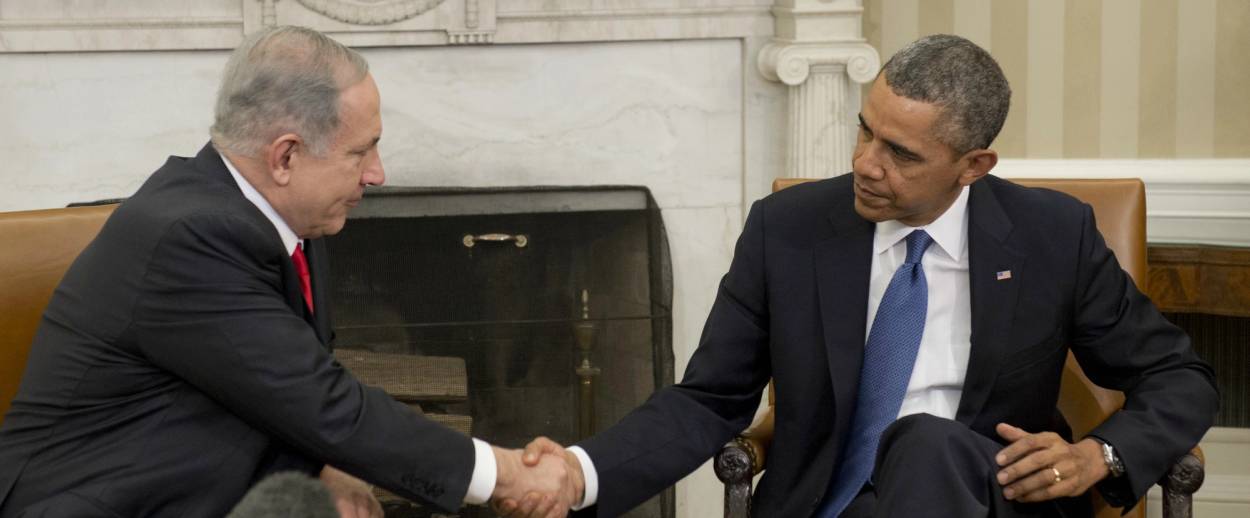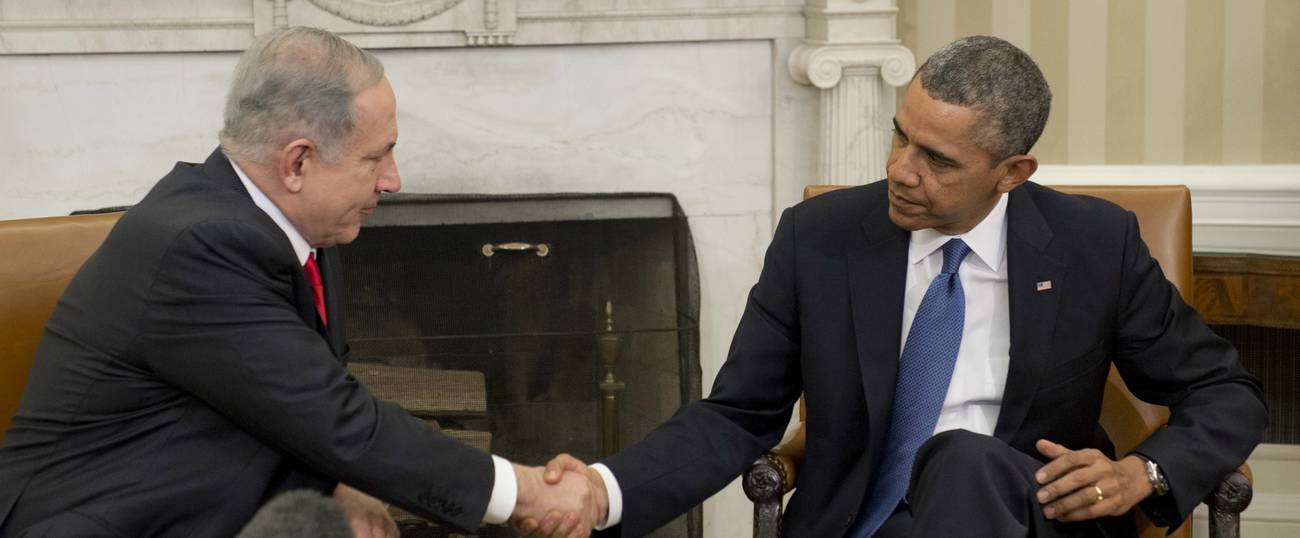Israel and U.S. Sign Historic Defense Aid Agreement, but It Comes With a Few Catches
An MoU side deal neutralizes Obama’s critics in Congress, reduces the impact of groups like AIPAC, and caps the amount of military aid Israel can receive




One of the several ongoing dramas in the U.S.-Israeli relationship reached what appeared to be a mutually satisfying conclusion this week, when the two countries inked a new ten-year Memorandum of Understanding (MoU) that outlines the next decade of American military aid to the Jewish State. The MoU commits the U.S. to an eye-popping $3.8 billion in annual aid—up from $3.1 billion under the last MoU—and a number that would account for nearly a quarter of Israel’s current annual military spending. The $38 billion package—the largest in U.S. history—also includes $5 billion specifically for joint missile defense projects.
On the face of it, the MoU cements American dedication to Israel’s long-term survival. As National Security Advisor Susan Rice put it on Wednesday, the MoU represents an “unprecedented commitment to the security of Israel and the Israeli people,” and a reminder of the “ironclad bond has endured l’dor va’dor, from generation to generation, across parties and administrations.”
But since this MoU occurred in the era of Barack Obama and Benjamin Netanyahu, its signing isn’t quite the straightforward breakthrough in relations that it appears to be. For starters, Obama used his own statement on the MoU as an opportunity to softly criticize Netanyahu’s approach to the peace process. The president found the memorandum’s signing to be the ideal occasion to remind Israel of “deeply troubling trends on the ground that undermine” the viability of a two-state outcome to the Israeli-Palestinian conflict. The MoU itself took over a year of negotiations to actually reach—which is unsurprising given the issues that Israeli and American negotiators needed to work through.
Under the last MoU, Israel was able to spend up to 26.3 percent of the U.S. aid package to purchase and develop weapons within Israel; this time around, the U.S. wanted the entirety of the allotment to be spent inside the United States on American defense materials. Obama and congressional leaders have occasionally feuded over legislative appropriations for military aid to Israel that exceeded the White House’s funding requests, most notably this past June, when Obama threatened to veto parts of a defense appropriations bill unless Congress reduced missile defense assistance to Israel by some $455 million. The Obama administration wanted the next MoU to include a mechanism to prevent Congress from allocating aid that went beyond the White House’s requested funding levels. The U.S. political cycle may have also had an impact on how the MoU negotiations played out, with Obama looking to solidify his pro-Israel legacy as he leaves the office, and Netanyahu perhaps wondering whether he was better off signing an MoU with the next president.
As it turns out, the White House got much of what it wanted. Under the new MoU, all U.S. military assistance to Israel must be spent on American soil by 2024. As a Jerusalem Post analysis noted, this cancels out a lucrative U.S. subsidy to Israel’s domestic arms industry and might actually result in Israeli companies having to outsource jobs to the United States: An unnamed “defense industry source” told the Post that “production lines in Israel are now under threat, and that some will have to be moved to the U.S.,” while larger Israeli companies could have to “[set] up subsidiaries on U.S. soil, and [act] as subcontractors in defense tenders that Israel will grant American companies.”
To critics, this provision of the MoU means that the U.S. military aid package to Israel is now little better than corporate welfare for American defense companies. Just as problematic is an unprecedented side agreement to the MoU, in which Israel reportedly promised to reimburse the U.S. for any aid that Congress allocated above the amount agreed to under the previous defense MoU, which expires after the 2018 fiscal year. Israel also reportedly agreed not to lobby Congress to raise spending levels during those years.
This carries a couple of important implications. The new U.S.-Israeli understanding effectively neuters Congress for the next few of years, as it enlists Israel in effectively prohibiting the legislature from going above the White House’s preferred spending levels: As Republican Senator Lindsay Graham put it in an interview with The Washington Post, the administration has “been trying to get a foreign government to help you take over the appropriations process.” And it diminishes the impact of domestic political pressure on Congress in the crucial area of U.S. military assistance to Israel. Although Bloomberg’s Eli Lake notes that it’s unclear how or whether the side-agreement impacts U.S. domestic lobbying on aid to Israel, there’s little point in a group like the American Israel Public Affairs Committee pushing for increased aid if Israel has already agreed not to receive or even ask for more than the earlier MoU stipulated. In a single move, the side deal neutralizes Obama’s critics in Congress, reduces the impact of groups like AIPAC, and caps the amount of military aid Israel can receive in coming years. For both critics and supporters of the administration, this could be taken yet another instance of Obama attempting to shift the terms of the U.S.’s relationship with Israel in a way that gives Washington somewhat greater degree of control and leverage within the alliance.
Of course, it’s hard for Israel to quibble with what if effectively a multi-billion-dollar defense subsidy. At the same time, the MoU is a reminder that U.S. military aid isn’t a straightforward matter for Israel, and that the country’s multi-billion dollar haul in American military hardware comes with its own set of political and economic complications.
Armin Rosen is a staff writer for Tablet Magazine.